Marty (1955)
Directed by: Delbert Mann
Written by: Paddy Chayefsky
Starring: Betsy Blair, Ernest Borgnine, Frank Sutton, Joe Mantell
USA
AVAILABLE ON DUAL FORMAT: NOW, from EUREKA ENTERTAINMENT
RUNNING TIME: 90 mins
REVIEWED BY: Dr Lenera, Official HCF Critic
Marty Piletti is an Italian-American butcher who lives in The Bronx with his mother and who never seems to have any luck with women. Unmarried at 34, he faces constant badgering from family, friends and even customers to settle down, pointing out that all his brothers and sisters are already married with children. Marty seems to have reluctantly resigned himself to bachelorhood – well – until he reluctantly goes to the Stardust Ballroom one Saturday night and connects with Clara, a shy schoolteacher whom he finds quietly weeping outside after being callously abandoned by her blind date….
There are those people who are “lucky” with the opposite sex, and those who aren’t. I guess one of the reasons that Marty involved me so much is that, up until my late 20’s [when for some reason I suddenly began to do rather better for myself], I was one of those who was unlucky.“What it is women want, I ain’t got” says Marty in the film and I remember having the exact same feeling. Marty, despite being as modest a film as you can think of, actually does a great many things, but one of the best things it seemed to do for me is articulate the feelings of frustration, puzzlement and even anger of probably anybody who is – or who used to be – unpopular with the opposite sex. God, there were moments in this film that were actually a bit painful to watch because – well – I’ve been there, and those moments were so full of perception and truth despite having been made in 1955. Certain aspects unavoidably date, but you could remake this film [though I hope they don’t] with few major changes and it may very well seem quite contemporary. One thing was sure – this was the first time I’d seen it, a film which is almost the definition of simplicity – and yet I was moved right from the first few minutes. It was easy to see what a breath of fresh air it must have seemed in 1955 with its down to earth approach, and in a way it’s still quite unique now. Hollywood still likes us to think that the definition of romance is grand passion between two beautiful young people. Marty dares to suggest otherwise, that true love also involves more ordinary types, and could be based more on finding someone you can understand, and who understands you, and with whom you can talk with for hours and hours and not notice the time.
This was actually an expanded version of a TV play made the year before starring Rod Steiger. Screenwriter Paddy Chayefsky was inspired to write it when he came across something called ‘The Friendship Club Meeting in a ballroom’, and noticed a sign that read “Girls, Dance With the Man Who Asks You. Remember, Men Have Feelings, Too”. The movie version used the same director Delbert Mann, and Esther Minciotti, Augusta Ciolli and Joe Mantell all repeated their roles. United Artists wanted Marlon Brando for the lead role, but producers Harold Hecht and Burt Lancaster, who according to some financed the movie as a tax-write off believing it would lose money, wanted a lesser known cast. It was director Robert Aldrich who suggested Ernest Borgnine. He proceeded to move both Mann and Chayefsky to tears during his audition. As for his co-star Betsy Blair, she lobbied for the role, but neither United Artists nor Hecht-Lancaster Productions wanted her because she was on the Hollywood Blacklist due to supposed communist sympathies. Her husband Gene Kelly then said that he would not appear in any of UA’s or Hecht Lancaster’s productions, and that he would pull out of It’s Always Fair Weather, if she wasn’t cast. UA almost pulled the plug halfway through filming because other Hecht-Lancaster films were over budget. The studio’s accountants saved the film by pointing out that under new tax laws they had to complete Marty and show it at least once before they could write it off as a tax loss. Shot in sixteen days plus an additional three days for retakes, this little film was a hit at the box office, won the Palm d’Or at Cannes and Best Picture, Best Actor, Best Director and Best Screenplay at the Oscars. More money was spent on the award campaign then on the actual film!
The story takes place over, I guess, around 20 or so hours. We first meet Marty at his job as a butcher, getting into a conversation with a lady customer about his younger brother recently having gotten married, a conversation which soon reveals that all four of Marty’s siblings have got hitched and ends with the woman saying: “When are you going to get married? You should be ashamed of yourself”. The next customer then says exactly the same thing! His mother Teresa despairs and seems to have almost resigned herself to the fact that he’ll never get married, while his friends – yes, Marty certainly has his friends – only seem interested in is skirt chasing and casual liasons, and constantly ask each other “What do you feel like doing tonight”. Without emphasising it except for one moment right at the end, these pals of his, especially a certain Angie, are really quite pathetic, stuck in a kind of adolescence. Marty still takes the suggestion from them that he ring up a girl he double dated with a month ago, and we aren’t allowed to hear what she says, but we certainly get the idea. She doesn’t even seem to remember him, then the camera slowly zooms into Marty’s face so we feel even more the hurt of his rejection. Marty understands how something like being given the brush off by somebody of the opposite sex can be so crushing, but it evokes that without going into melodramatics, Ernest Borgnine doing little more than closing his eyes.
Mother persuades him to go to a dance where another man offers him 5 dollars if he’ll take his blind date off him. Of course he’s too much of a gentleman to accept, but he’s taken by the sight of the girl and eventually asks her to dance after she’s wept onto his shoulder. There begins a lengthy romantic evening in which Clara is too shy to barely say anything while Marty rabbits on and on. It’s obvious that these two are suited from the word go, but both are insecure, inexperienced and prone to saying and doing the wrong things. It almost hurts watching these two ugly ducklings together, but in a good way if you know what I mean, because you want them so much to be together. However, Marty seems to be surrounded by people who don’t share his view of Clara, one of them being mum, because she’s suddenly under the influence of his aunt Catarina who’s been all but thrown out of her previous place of residence by his brother Tommy and Tommy’s wife Virginia. This subplot isn’t handled quite as well as the main story, and some may find the Italian-American-isms overdone or cliched, but there are still some good scenes that provide an effective counterpoint to Marty and Clara, such as the showing of a marriage [Tommy and Virginia] in a lot of trouble, or reminding us of the sad fact that older people, once they reach a certain age, can be a burden to the young who have little use for them. Esther Minciotti and August Chiolli are wonderful as to too very different sisters together and probably get the best of the film’s lines. i.e “College girls are one step up from the street”.
It eventually hinges mostly on whether Marty will finally stand up for himself and what he really wants, and you probably know the answer without seeing the film, but you also may feel like cheering almost as much as when C. C. Baxter finally develops a backbone in The Apartment. Chayefsky tends to blow either hot or cold for me, but his writing in Marty certainly has a realism to it and even a kind of street poetry in some scenes. One may wince at the way Clara is frequently called a dog – I think we’ve progressed a bit since 1955 in this kind of thing though I wouldn’t be surprised if some younger teenage boys still talk in this manner about girls. It’s kind of ludicrous though really, because Betsy Blair is no dog whatsover – okay she’s no typical Hollywood glamour-puss, but I’d have certainly “noticed” her at a dance or in a bar and then probably proceeded to make a fool of myself. Gene Kelly was a lucky guy. I guess that for me this is the film’s only major flaw. I think that a far less attractive female lead would have been easier to believe, but then again we wouldn’t have then had Blair’s touching performance. Just look at the way her eyes periodically light up as Clara warms to Marty more and more. Also lovely is when she finally feels secure enough to start talking herself, while Borgnine gets his best non-dialogue moment soon after that when, filled with that dizzying feeling we’ve all had when we realise we’re in love or at least seem to have made a connection with somebody, weaves in and out of traffic on a busy road and punches a sign.
Joseph LaShelle’s cinematography is straight forward [this is basically a play after all] but I liked the slow pan into a face during a rejection deliberately mirroring that earlier rejection over the telephone shot in exactly the same way, and there seems to be a great deal of use of real Bronx locations that give the film an authentic feel. Roy Webb’s score, mostly variations on the waltz heard over the opening titles, is sometimes a bit intrusive and I feel that the film may have been better served by a more ‘up to date’ soundtrack. But overall Marty seems to me to be almost as poignant and as vital in 2018 as it obviously was in 1955. And even if you still consider yourself to be a failure with the opposite sex, after watching Marty you’ll be left with a feeling of hope, and the feeling that somewhere, out there, is the person for you.
Rating: 









For the most part, Marty looks very good on Blu-ray, nicely sharp and with just the right amount of grain, though there are a few shots, possibly damaged beyond total repair, that looks a bit dirty or with lines/scratches on the screen. As with the 2014 Region ‘A’ Kino Lorber release which was the basis for this one, there’s been some controversy about the aspect ratio. Supposedly the film should be a bit wider than what we’re prevented with which is basically TV-format, but to be honest it shouldn’t weaken the experience of watching it. I didn’t notice any major issues with the framing.
Kino’s release was virtually bare bones. By contrast, Eureka have located the original TV version on a 1981 series called The Golden Age Of Television, and, despite looking in pretty bad shape, it’s fascinating to compare to the movie. Being 38 minutes shorter, it feels undeniably abridged after seeing the film, and even a bit claustrophobic, but it’s also tighter, if missing some of the great bits from the film such as the walk around the city. It’s interesting to see what Chayefsky added for the film version, often taking lines or brief moments and spinning them into whole scenes. He even altered some dialogue. In his own way Rod Steiger is as good as Borgnine, especially when you consider that he was recorded live. His performance is more external, but has a bit more of an edge to it, while Nancy Marchand may not come near Blair in terms of acting but is suitably plain looking and therefore more convincing at least visually in her role. Well worth checking out and pretty good in its own right. The five minutes-worth of cast plus director interviews from 1981 are nice, though of course extremely brief. And then we have Neil Sinyard talk for 20 minutes about the production, reception and importance of the film, which he describes as a kind of Hollywood version of Italian Neo-realism.
A classic movie that should warm any heart and a fine release. The Doc highly recommends!
DETAILS:
*1080p presentation of the film on Blu-ray, with a progressive encode on the DVD
*Uncompressed LPCM audio [on the Blu-ray]
*Optional English subtitles for the deaf and hard-of-hearing
*Marty – The original teleplay broadcast on NBC in 1953, also directed by Delbert Mann and starring Rod Steiger in the title role
*Archival interviews with Delbert Mann and the cast of the original teleplay [Rod Steiger, Nancy Marchand and Betsy Palmer]
*A new video interview with film scholar Neil Sinyard
*Original theatrical trailer presented by Burt Lancaster

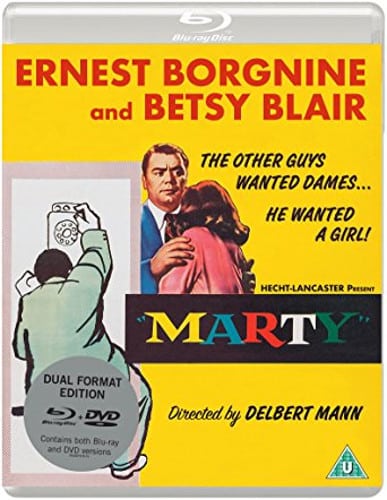
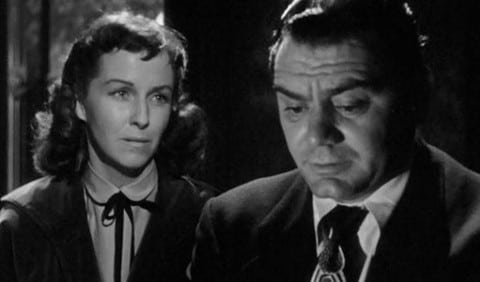
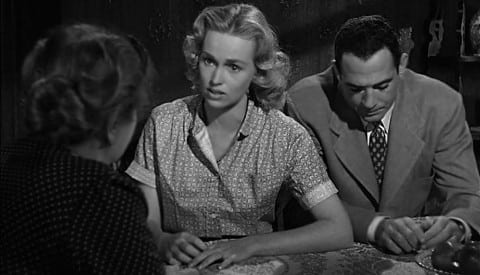

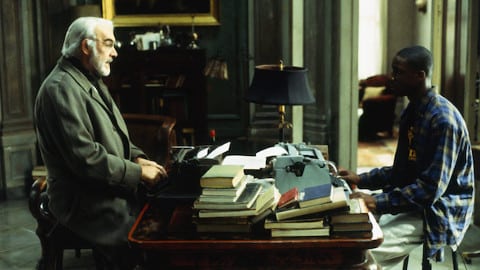
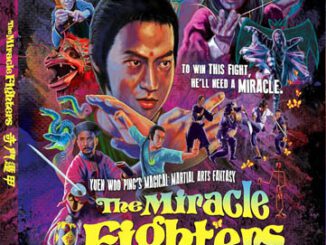
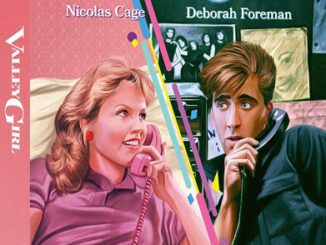
Be the first to comment